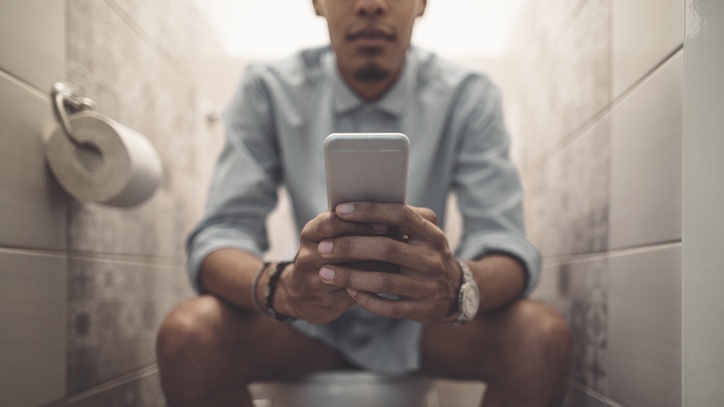One simple step in the bathroom can prevent the spread of the coronavirus, studies show.
Researchers advise closing the toilet seat, as COVID-19 can travel through fecal matter that escapes during flushing, called “toilet plume,” and can reach up to 15 feet high, according to Business Insider. Scientists warn that the virus can be transmitted through aerosolized feces, according to a study published by the Association for Professionals in Infection Control and Epidemiology.
While the particles can carry COVID-19, there’s one “very easy way to help prevent the spread of coronavirus,” Qingyan Chen, professor of mechanical engineering at Purdue University, told Forbes. “Close the lid and then flush.”
Closing the lid will prevent 80% of particles from spreading into the air.
“A toilet flush can release up to 80,000 polluted droplets and leave them suspended a meter in the air for hours if the lid is left up,” according to a study from the City University of Hong Kong.
When using a public bathroom, wash your hands first and try to flush with gloves or paper towels to avoid contact. You should also wait one to two minutes after someone has used it according to Chen.
While closing the lid is important, it’s not a “complete prevention,” according to researcher Alvin Lai. He also advises to regularly clean bathrooms with bleach.
Chen advises disinfecting the entire bathroom after every use if you are sharing it with someone who is infected with COVID-19, as the danger of transmission through fecal-oral is higher for those who are showing symptoms.
Prior to this discovery, scientists advised that the coronavirus can be spread through fecal-oral transmission. A study conducted by Gastroenterology found that many patients who tested positive for COVID-19 experienced symptoms such as diarrhea, nausea and vomiting before respiratory issues.
The study also found that the virus can be detectable through fecal matter even after it is cleared from the respiratory tract and a swab test results in a negative.
They looked at 73 patients who were hospitalized for possible coronavirus infection, and 39 of those patients tested positive through their feces. The fecal matter of 17 patients tested positive following a negative respiratory test.
"A better understanding of how this virus is transmitted is key to preventing its spread. These observations may also help in improving how the disease is diagnosed through testing for the presence of virus in the stool of patients suspected of harboring this virus,” Douglas A. Corley, a doctor at Kaiser Permanente San Francisco Medical Center, told MedPage Today.
